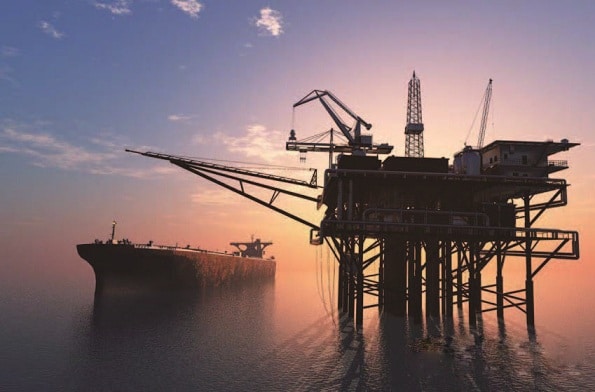In the harsh environment of marine operations, equipment faces many challenges, such as high pressure, high salt spray, highly corrosive seawater, drastic temperature changes, and marine organisms. This places extremely high demands on the materials used. Among many metals and alloys, titanium stands out as the first choice for marine operations. Its unique comprehensive properties make it an irreplaceable position in the marine field.
Unparalleled corrosion resistance
The marine environment is extremely corrosive, and the salt, dissolved oxygen and other chemicals in seawater can cause serious erosion to metals. Unlike common materials such as stainless steel and carbon steel, a stable and dense oxide film can be quickly formed on the surface of titanium. This oxide film has the ability to self-repair. Even if it is slightly scratched, it can quickly re-form when it comes into contact with oxygen, effectively preventing further corrosion of titanium by seawater. In marine facilities such as oil platforms, submarine pipelines and desalination plants, titanium can resist seawater corrosion for a long time, greatly reducing maintenance costs, extending the service life of equipment, and reducing equipment failures and production interruptions caused by corrosion. For example, titanium desalination devices used in some coastal areas have remained stable after years of operation, while other easily corrosive materials may require large-scale replacement of parts every few years.
Excellent strength-to-weight ratio: light and powerful
Titanium has an amazing strength-to-weight ratio. Its strength is comparable to that of steel, but its weight is only about half that of steel. In marine operations, reducing the weight of equipment is of great significance. For example, if titanium is used for drill pipes used in offshore drilling platforms, the load of the entire platform can be significantly reduced, making the platform structure design more flexible, while also reducing the use of steel and reducing costs. In addition, in deep-sea operations, the weight of the equipment will have a greater impact on its performance. The lightweight advantage of titanium materials can make the equipment easier to transport, install and operate, and improve operating efficiency.

Hydrogen embrittlement resistance: Stable guarantee for deep-sea environments
Hydrogen embrittlement is a major problem facing metal materials in high-pressure, highly corrosive deep-sea environments. Many metals become brittle under the action of hydrogen, resulting in a significant decrease in material performance and even fracture failure. Titanium has good resistance to hydrogen embrittlement and can maintain its good ductility and toughness even under high pressure. This makes titanium widely used in key parts of deep-sea equipment, such as submarine wellhead devices and deep-sea robot joints, ensuring the safe and reliable operation of these equipment under extreme high pressure conditions, effectively reducing the risks of deep-sea operations.
Wide temperature adaptability
The temperature range in the marine environment is huge, from the cold waters of the polar regions to the warm seawater in the tropics, with a temperature difference of tens or even hundreds of degrees. Titanium can maintain stable performance in a wide temperature range of -269°C to 600°C. In some deep-sea exploration operations, titanium instrument components can work normally in low-temperature environments, and in the heat treatment links in marine resource development, such as heat exchange in the desalination process, titanium can also maintain strength and corrosion resistance at high temperatures to ensure stable operation of equipment.
Sustainability and long service life
The high performance of titanium directly leads to the long life of equipment and infrastructure. Compared with other easily corrosive materials, titanium equipment has a longer service life, which means that the frequency of replacing equipment and components is greatly reduced throughout the life cycle of the project, reducing the consumption of raw materials and the generation of waste. In addition, titanium materials have good recyclability, which is in line with today’s society’s pursuit of sustainable development. In the long run, although the initial cost of titanium materials may be high, it is actually a cost-effective choice considering its long-term performance and maintenance costs.
Cost-effectiveness and changes brought about by technological progress
In the past, people may have thought that titanium materials were expensive and discouraged. However, with the continuous advancement of titanium processing technology, production costs have gradually decreased, and the market price of titanium has become more and more competitive. At the same time, from the perspective of full life cycle costs, the advantages of titanium in marine operations are more obvious. Although the initial investment is high, the benefits of energy saving, high efficiency, and long life are enough to make up for the cost gap and bring higher economic benefits to marine operations.
__________________________________________________________________________________________________
Daxun Alloy Co., Ltd. is a professional supplier in the metal industry, providing high-quality titanium metal products to customers from all over the world. If your project has needs, please contact us immediately.
Reference:https://www.tiflange.com/news/sea.html
https://titek.co.uk/why-is-titanium-used-in-offshore-applications/

